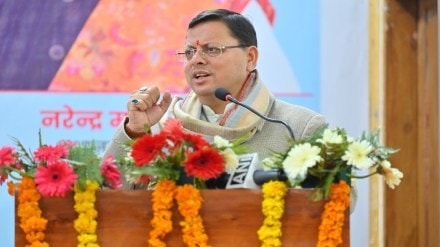With the commencement of the special Uttarakhand Assembly session on Monday, the stage is set for Chief Minister Pushkar Singh Dhami’s government to table the Uniform Civil Code (UCC) Bill on February 6.
This special four-day session, convening at 11 am in Vidhan Bhavan, Dehradun, has been specifically called to pass legislation on the UCC following approval from the state cabinet.
Also Read:Polygamy ban, tribals exempted: What Uttarakhand UCC panel recommended in its draft report
Meanwhile, security measures have been heightened around the assembly premises and sensitive areas within the city in preparation for the special session. “Uttarakhand Assembly’s special session has been called. As in the past, we have placed barricades at entry points around the Assembly to stop any protests… More than 200 constables and 100 inspectors have been placed in the periphery of the Assembly,” said Ajai Singh, Senior Superintendent of Police, Dehradun.
On Sunday, the Cabinet approved the UCC draft at a meeting held at the Chief Minister’s residence. A committee set up to prepare a UCC draft submitted its report to the CM on Friday following an extensive consultation process.
Also Read: Uttarakhand panel submits Uniform Civil Code draft to CM Pushkar Dhami
“In the cabinet meeting on Sunday, a proposal to bring a bill on the Uniform Civil Code in the upcoming Assembly session was unanimously passed. We will table it in the Assembly. We will move forward in the direction to make it an Act,” Chief Minister Dhami told ANI.
The five-member expert committee, led by retired Supreme Court judge Ranjana Prakash Desai, submitted the 800-page report to Chief Minister Dhami. The report recommends exempting tribal communities, prioritising women’s equality, banning practices like polygamy, and establishing a uniform marriage age across religions.
The UCC aims to implement uniform civil laws for all communities in the state. The report also highlighted key aspects, including making halal, iddat, and triple talaq punishable offences.
Chief Minister Dhami further shared insights into the extensive consultation process: “The village, known as the last village of India, was referred to by the PM as the first village, so the committee started the work of taking suggestions from there and 43 other places. A total of 2,33,000 people gave suggestions, including 10 per cent of the families of Uttarakhand.”
Sources told The Indian Express that once passed by the Uttarakhand Assembly, the Bill could serve as a “model” for other states. Plans include its consideration in the Gujarat and Assam assemblies.
